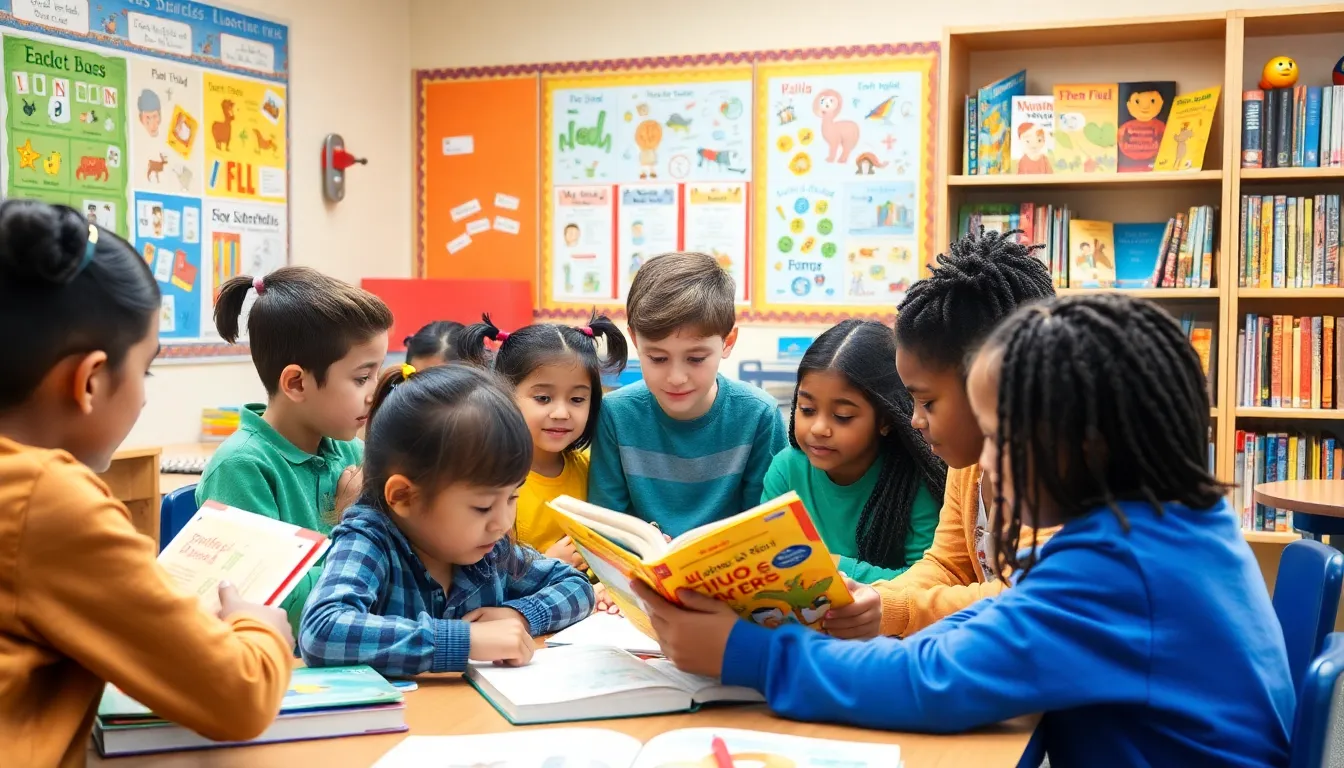Table of Contents
ToggleIn a world where emojis often speak louder than words, mastering the art of reading and literacy might seem like a lost cause. But fear not! Pursuing a master’s degree in reading and literacy isn’t just about deciphering ancient texts or impressing your friends with obscure vocabulary. It’s about unlocking the power of words and transforming lives—one book at a time.
Imagine wielding the superpower to help struggling readers become literary ninjas. With this degree, educators can dive deep into the science of reading, explore innovative teaching strategies, and foster a love for literature in students of all ages. So, whether you’re looking to spice up your teaching career or simply want to impress your book club, a master’s in reading and literacy could be your golden ticket to making a real difference in the world of education.
Overview of Masters Degree in Reading and Literacy
A master’s degree in reading and literacy prepares educators to teach reading effectively and fosters a love for literature in students. This advanced degree typically includes coursework covering literacy development, assessment strategies, and instructional techniques.
Students completing this program gain expertise in recognizing diverse reading needs and implementing tailored intervention strategies. Many programs emphasize practical experience through fieldwork, allowing candidates to apply theory in real classroom settings.
Graduates often pursue roles such as reading specialists, literacy coaches, or curriculum developers. Additionally, the program equips educators with essential skills to address the challenges faced by struggling readers, making a significant impact on student outcomes.
The curriculum may also cover topics like digital literacy and the integration of technology in reading instruction. Transformational learning experiences occur through collaboration with peers and faculty, enhancing professional networks within the education community.
Achieving a master’s degree in reading and literacy opens numerous opportunities for educators passionate about enhancing reading skills and promoting literacy among diverse student populations. This degree plays a crucial role in fostering a generation of enthusiastic readers committed to lifelong learning.
Importance of Reading and Literacy Education

Reading and literacy education plays a crucial role in shaping students’ futures. It not only enhances reading proficiency but also fosters critical thinking and creativity.
Impact on Students’ Academic Success
Strong literacy skills significantly influence students’ academic performance across all subjects. Improved reading abilities lead to higher comprehension levels, allowing them to engage deeply with complex materials. According to the National Assessment of Educational Progress, students with solid reading skills often achieve better test scores than their peers. Educators trained in literacy development can identify specific challenges that hinder students’ learning, providing targeted strategies to boost their performance. Tailored reading interventions help struggling students overcome obstacles, contributing to overall academic improvement.
Role in Lifelong Learning
Reading and literacy education supports lifelong learning by equipping students with essential skills. Individuals with strong literacy skills navigate information efficiently, making informed decisions throughout their lives. In today’s digital age, being literate means more than just reading traditional texts; it includes analyzing online content, understanding multimedia, and applying this knowledge practically. Educators who emphasize literacy also inspire students to pursue knowledge independently, cultivating a love for reading that lasts into adulthood. Lifelong learners adapt and thrive in ever-changing environments, proving the lasting impact of robust reading education.
Curriculum and Course Structure
The curriculum for a master’s degree in reading and literacy encompasses a blend of core and elective courses designed to prepare educators effectively. Students engage with foundational topics that emphasize essential literacy practices and strategies.
Core Courses in Reading and Literacy
Core courses focus on critical aspects of reading development and literacy instruction. Participants typically study literacy theories, assessment methods, and intervention techniques. Comprehensive coverage of topics includes phonics, comprehension strategies, and diverse reading needs. Practicum experiences often accompany coursework, offering hands-on opportunities to apply learned concepts in real classroom settings. Literacy coaching methodologies provide further insight into supporting struggling readers. Each component of the core curriculum aims to equip graduates with knowledge and skills essential for fostering effective literacy education.
Elective Courses and Specializations
Elective courses and specializations allow educators to tailor their learning experiences according to their interests. Options often include digital literacy, multicultural literature, and technology integration in reading instruction. Educators can explore advanced topics like reading neuroscience and literacy programs for English language learners. Flexibility within the curriculum encourages individuals to focus on areas that align with their career goals. Such specialized knowledge enhances their ability to address diverse literacy challenges encountered in various educational contexts. Overall, these electives prepare graduates to be innovative and adaptive literacy leaders.
Career Opportunities with a Masters Degree in Reading and Literacy
Graduates with a master’s degree in reading and literacy access diverse career paths. These opportunities span teaching, administration, and curriculum development.
Teaching Roles
Reading specialists play a pivotal role in enhancing literacy. They work directly with students, providing individualized support and strategies to improve reading skills. Literacy coaches offer professional development to teachers, equipping them with effective instructional methods. Additionally, educators can teach reading at various levels, from elementary to higher education, fostering a love for literature. Specialized positions, such as reading interventionists, focus on helping struggling readers achieve proficiency.
Administrative and Leadership Positions
Holding a master’s degree opens doors to administrative roles, such as literacy program directors. These professionals create and oversee comprehensive literacy initiatives within school districts. Curriculum developers design reading programs, ensuring alignment with educational standards. School administrators also benefit from this degree, enabling them to implement and assess literacy programs effectively. Engaging in leadership roles, such as department heads, allows individuals to influence literacy practices and drive systemic change within educational institutions.
Admission Requirements and Application Process
Admission to a master’s degree program in reading and literacy typically involves several key requirements. An applicant generally needs a bachelor’s degree from an accredited institution. Transcripts from previous education provide evidence of academic performance and foundation for graduate studies.
An educator should also submit a statement of purpose, which outlines their motivation for pursuing this degree and future career aspirations. Letters of recommendation further strengthen the application, reflecting the applicant’s qualifications and potential for success in the program.
Standardized test scores might be required by some institutions, though many have opted for test-optional policies. A strong score can enhance an applicant’s profile, showcasing readiness for graduate-level coursework. Additionally, relevant teaching experience significantly contributes to an application, demonstrating practical skills in literacy instruction.
The application process typically involves completing an online application form. Most schools require that all documents, including transcripts, letters of recommendation, and personal statements, be submitted electronically. Adhering to deadlines is crucial, as submission dates can vary by institution.
Prospective students should also research each program’s specific requirements, as they can differ. Some schools offer rolling admissions, providing flexibility in application timing, while others have fixed deadlines. Engaging with admissions counselors or program advisors can clarify any doubts regarding the process.
Finally, financial aid options, scholarships, and grants are often available to support students. Exploring these resources can relieve some financial burdens, making the pursuit of a master’s degree in reading and literacy more attainable.
Pursuing a master’s degree in reading and literacy is a transformative step for educators dedicated to fostering a love for reading. This degree not only equips them with essential skills but also empowers them to make a meaningful impact on students’ lives. By embracing innovative instructional strategies and understanding diverse literacy needs, graduates become leaders in their field.
As they take on roles like reading specialists or literacy coaches, they play a crucial part in shaping effective literacy practices. The opportunities that arise from this advanced education extend beyond the classroom, influencing educational policies and practices on a larger scale. With a commitment to promoting literacy, these educators are poised to cultivate a generation of enthusiastic readers ready to thrive in an ever-evolving world.







